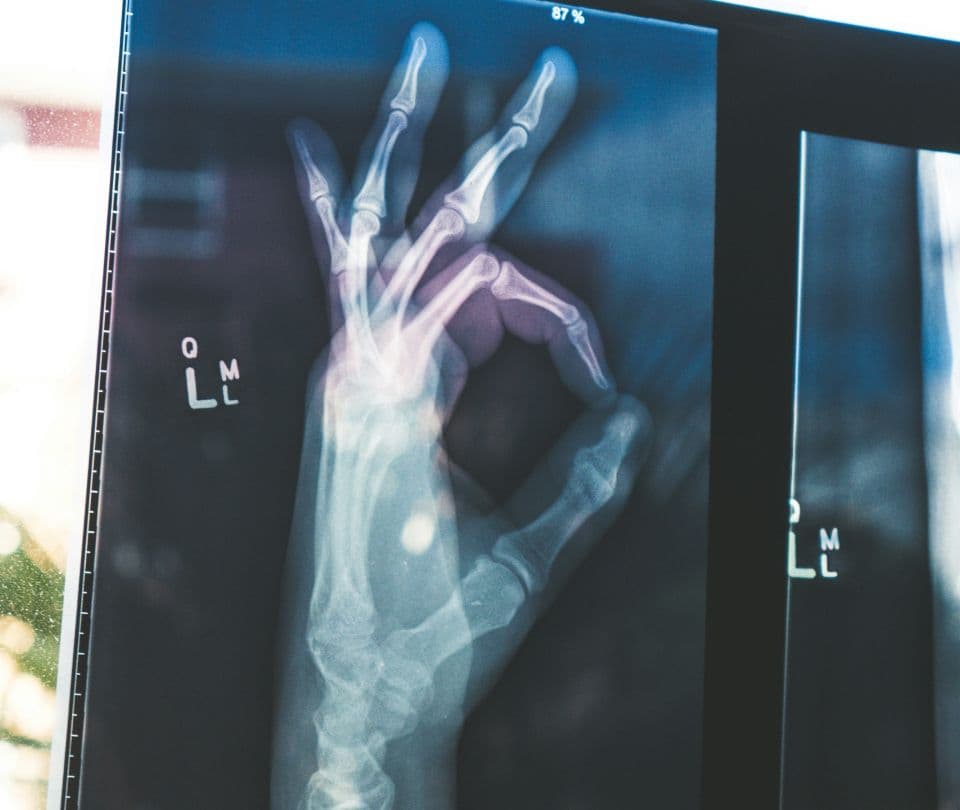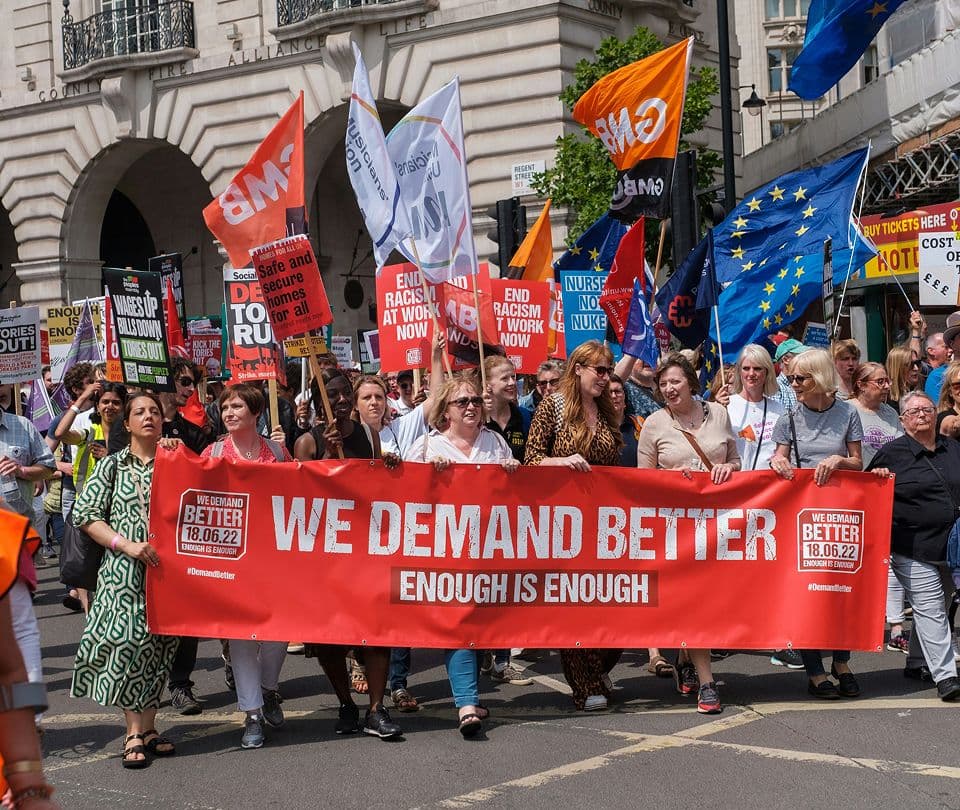Is income protection worth it?

How income protection helps you
Most of us need to earn our living. Whether we’re single, in a relationship or looking after a family, our income is one of our most important assets. It’s so much a part of our routine that we often take it for granted. But how safe is it? In the UK in 2023, 2.8 million people were forced to take long-term sick leave.
Surveys have shown that most working people couldn’t manage without their income for more than a few weeks. Since illness and injury can happen to anyone at any time, it pays to be prepared for the unexpected and taking out an income protection policy while you’re fit and working means you can rely on a replacement income to support you when you can't earn. From most insurers you can get up to two-thirds of your gross income, tax-free, paid monthly until you’re fit to go back to work. Some insurers, like Eleos, offer 65%.
Financial security
If you’re thinking, ‘why have income protection insurance?’ this is the most obvious answer. Hopefully, a secure job means you can afford to cover your essential costs and have some left over for savings and fun. But if you were suddenly forced to stop working, that could change dramatically. If illness or injury forces you to stop working, you may receive far less than full pay while you're on sick leave, as statutory sick pay (SSP) is just £118.75 per week. While some employers choose to offer company sick pay which exceeds the SSP amount, many do not.
For a relatively modest monthly cost, you can insure yourself against the risk of being unable to work. And as long as you keep your policy going you can claim as many times as you need to. Even if you get decent sick pay from your employer you can benefit from income protection payouts that take over when your sick pay period ends.
Worry-free living
Financial security is more than a practical benefit. It’s a feeling. An income protection policy brings peace of mind so that you can get on with your life without worrying about the damage illness and injury could do to your income. If you have a family or dependants it’s a great comfort to them too.
The risk of being unable to work may not have crossed your mind but it’s never too early, or too late, to think about it.
Equal help for everyone
For decades, governments have tried to provide a safety net for people who become too sick to work. Universal credit exists as a kind of last resort for anyone on low income but specific measures apply to people on long-term sick leave (which is defined as being 4 weeks or longer). Employees and the self-employed are treated differently
Statutory Sick Pay (SSP): Since 1983, employers have been legally responsible for paying their employees a minimum level of sick pay, which is currently £118.75 for up to 28 weeks. In order to qualify for SSP, you must be classed as an employee and have done some work for your employer. earn an average of at least £123 per week and have been ill for more than 3 days in a row (including non-working days)
Employment and Support Allowance (ESA): this is a state benefit you can claim if you’re self-employed and temporarily unable to work. The current rates are £72.90 per week for under 25s and £92.05 per week for over 25s.
Income protection insurance is a level playing field. As long as you’re in work you can take out a policy and claim benefits. If you’re an employee, your payslips and P60 will confirm what you earn. If you’re self-employed you’ll need to show your accounts or possibly your self-assessment tax returns. Either way, you can get the same level of protection whatever your employment status.
Factors that could affect your income protection
Like any insurance policy, there are limitations on what you’re covered for and when you can claim.
Health
Part of the process of taking out income protection insurance is answering questions about your current and past health. You may also be asked about your family’s medical history. Insurers need to know if you have what they call a pre-existing condition or whether you might inherit one. This won’t necessarily mean you can’t get insurance, but it may mean certain conditions won’t be covered.
Lifestyle
One of the most frequently asked questions we get is: what doesn’t income protection cover? And truthfully, the answer is - not much. But, like any good thing, there are some limits.
Pre-existing conditions. These are conditions that you had at the time of taking out the policy or in the recent past. You won’t be able to claim if the condition stops you working, but even more importantly, if you keep this information from your insurer it could invalidate your entire policy.
High-risk activities: Policies typically exclude cover for the consequences of high-risk activities such as extreme sports, mountaineering, and skydiving.
Cosmetic surgery: As much as we love a glow-up, income protection won’t cover any loss of earnings that comes as a result of cosmetic surgery
Illness or injury within your waiting period: When taking out a policy, you choose a waiting period—the time between making a claim and receiving your first payment. If you recover before this period ends, your claim won’t be paid.
Other sources of income
Income protection covers a proportion of your earnings, up to a maximum of 70%, which is roughly equivalent to your take-home pay after tax. However, if you have other sources of income to rely on when you’re on sick leave, your insurance payout may be reduced accordingly. This could be the case if you’re getting sick pay from your employer that’s more than the SSP minimum or money from another insurance policy. However, it doesn’t apply to state benefits like ESA or state mandated benefits like SSP, so your insurance will pay you on top of these.
Alternatives to income protection
Apart from SSP and ESA, there are fairly limited alternatives:
Savings
If you’ve built up savings you might prefer to use these, but there are two important differences. Firstly, your savings aren’t limitless. Once you start spending them, it may take you some time to replace them. Secondly, if your savings are in an account that bears interest you’ll lost that passive income on any money you withdraw. In contrast, an income protection policy will pay you the amount you’ve chosen every time you’re too sick to work and you make a valid claim. It's possible you’ll never need it, but if you do it means you can leave your savings untouched and if you do it still has the enormous benefit of peace of mind.
Loans
When you can’t work it can be tempting to take out a loan. But you need to decide whether the cost of getting into debt, and paying it back with interest, is preferable to the proactive protection of insurance, with the certainty of regular monthly premiums. You can budget for insurance premiums, but loan repayments are a new financial burden.
Family support
Financial help from family members is an option if you have willing and able relatives. Difficulties can arise if you can’t put a clear limit on how long you’ll need their support. At first they might be very happy to help, but at some point it may become too big a burden for them and they’ll have to stop. That can put an uncomfortable strain on family relationships and it means you can’t be sure exactly how much help to expect and for how long.
How much is income protection insurance?
This is a very rough guide to the average cost, based on recent findings by the independent protection adviser Lifesearch, to provide a monthly income of £1,500:
- Under 30s in low-risk jobs - £5-£20 per month
- Over 40s or in moderate-risk jobs - £20-£40 per month
- Over 50s or high-risk jobs: - £40 or more per month
Payouts and claims
According to the Association of British Insurers, in 2023:
- Claims on individual income protection policies rose by 43% year-on-year to 22,542
- The total value of claims increased by 6% to £778,564
- The average payout per claim was £21,913
Conclusion
Income protection provides a cost-effective defence against the financial impact of illness and injury. There are other sources of help but many of them may not give you adequate support. An income protection policy can work in conjunction with the alternatives or on its own. However you use it, the cost of maintaining a policy could be far lower than the consequences of going without protection.
FAQs
You can, but the total amount you can receive from all policies can’t exceed the proportion of your income for which you’ve covered. For example, if you’re covered for 70% of your income, it doesn’t matter how many policies you have, this is the most you’ll receive.
Premiums and conditions of cover vary, so it’s worth looking around not only for the cheapest deal but also for the policy that best suits your needs. You can ask an independent financial adviser for guidance, use comparison websites, or contact insurance companies individually.
Yes, usually once a year. This is because your chances of becoming ill or being injured increase as you get older.
No, your income protection policy has no cash value so you won’t be able to withdraw or borrow money from it, nor can you use it as security for a loan.

Related resources

Turning Customer Curiosity Into Confidence: Theea's Coverage Calculator
Introducing Theea's Coverage Calculator: the intuitive insurance tool inspired by thousands of customer conversations that turns anxiety into tailored advice and confusion into confident choices.

Meet Your Newest Eleos Perks
We’re expanding our perks with two new additions designed to turn good intentions into healthy habits. Discover everything you can get for free with an Eleos policy.

Income protection for smokers
If you smoke, you may have a tough time getting income protection insurance, but it’s not impossible.

Do doctors need income protection?
A career as a doctor may be a vocation but you still have to earn a living

Do trade union members need income protection?
What financial support will your union give you if illness or injury forces you to stop working?

Getting Britain Working Again?
On 18th March 2025, the Secretary of State for Work and Pensions announced controversial disability benefit reforms
